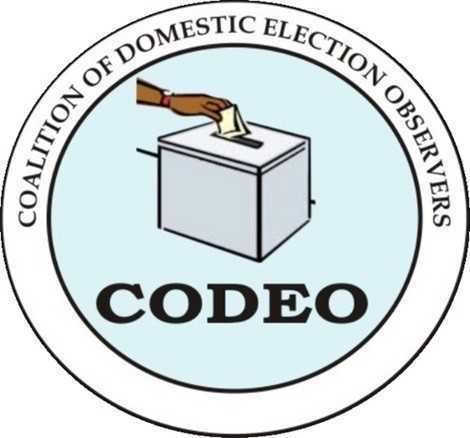CODEO wants chiefs to galvanise support for district level elections
The Coalition for Domestic Election Observers (CODEO) has urged traditional rulers in the country to galvanise support for the 2019 District Level Elections (DLE) to help elect people of substance in their respective jurisdictions.
National Coordinator of CODEO, Albert Arhin, said traditional rulers play an important role in the lives of their subjects; stating that “they should thus as a matter of urgency start putting measures in place in alliance with the Electoral Commission (EC), the National Commission for Civic Education (NCCE) and civil society organisations (CSOs) to galvanise support for the impending district level elections.”
Mr Arhin made the appeal in his presentation at the ongoing five-day workshop for traditional rulers at the Otumfuo Centre for Traditional Leadership (OCTL), University of Professional Studies (UPSA), in Accra.
The workshop, which is the seventh to be organised by the OTCL, was on the theme “Galvanising Traditional Leadership Towards 2019 DLE.”
It is being attended by more than 50 paramount and divisional chiefs, queen mothers and staff of the regional and national houses of chiefs.
Of the total number of participants, three chiefs and ten queen mothers from the Gbi Traditional Area in the Volta Region are being sponsored by Mr John Peter Amewu, the Energy Minister.
The workshop was opened by Mr Kwasi Boateng Adjei, a Deputy Minister of Local Government and Rural Development on behalf of Hajia Alima Mahama, Minister of Local Government and Rural Development.
Mr Arhin said against the backdrop of the fact that district assembly and unit committee elections had recorded very low turnout from the year 1994 to the year 2014, it behoves on traditional authorities to galvanise for effective support and participation from their subjects in the forthcoming district level elections.
He said the originators of the District Assembly concept had in mind the idea of development at the grassroots, using the bottom-up approach to development concepts.
He noted that since traditional rulers, chiefs and ‘Odikros’ were living with the people they would understand them more and cooperate if they appeal to them to participate in the assembly elections.
“The appeal here is that Nananom, with all due respect, should take an active part in mobilising support and participation in the forthcoming election through durbars, seminars, symposia et cetera. to drum home the fact that the district level elections ultimately bring development to the people at the grassroots,” he said.
“All traditional rulers residing in the metros, sub-metros, district assemblies, town councils, zonal councils, as well as the units, should join forces in the crusade to sing a song of effective participation in the forthcoming elections,” he added.
He said this campaign of full participation by the subjects should be done in a collaborative effort with the EC, NCCE and civil society.
“The question then is how they can do this? The obvious answer is that the EC, the NCCE and civil society should organise training programmes within the next few months to sanitise chiefs and carry them along by way of knowledge acquisition with regards to the working of the district assembly.”
Mr Arhin said this could be done on a regional basis or putting the whole country into zones to achieve this noble objective; adding that, this learning process for Nananom would further broaden their knowledge on the task ahead so that they could join forces with other stakeholders to achieve this.
“The time to involve Nananom is now or never,” Mr Arhin declared.
Professor Abednego Feehi Okoe Amartey, the Vice Chancellor, UPSA in a statement read on his behalf said the University Management was pleased to note the increased enrolment of participants for the workshop, together with the enthusiasm of the highly motivated resource persons, which continue to garner confidence among current and prospective participants.
He said Management would continue to support the Centre’s programmes, to position it as the best provider for effective traditional leadership in Ghana and in the African continent.
He said being agents of change and development, the role of chiefs in society was pivotal, so workshops such as these were important to acquire information and disseminating it to the citizenry.
Dr Gerald Dapaah Gyamfi, Director, Drolor Centre for Strategic Leadership, UPSA, with oversight of the OTCL, said the traditional leadership centre at the UPSA provides the platform for an institutionalised training programme for traditional leaders that would enhance their capacity to lead and manage their resources effectively and sustainably.
Torgbi Keh XII, Divisional Chief of Gbi-Wegbe on the behalf of his colleagues expressed gratitude to Mr Amenu for sponsoring them.
He said the knowledge they would acquire at the UPSA would go a long way to help them improve upon their performance as traditional rulers.



